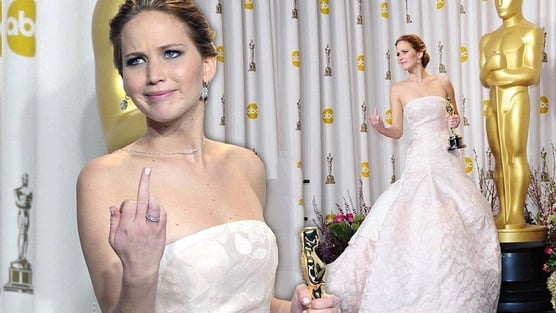
Appropriation artist XVALA (real name Jeff Hamilton) appears to have grown a conscience, and has cancelled plans to include the recently stolen nude photos of Jennifer Lawrence and Kate Upton in “No Delete,” an upcoming “art” exhibition opening October 30 at Cory Allen Contemporary Art (CACA) in St. Petersburg, Florida.
A press release from CACA credits “public outrage” and “persuasive online petitions” (not to mention the negative response from the press, such as artnet News’s Florida Gallery Will Show Jennifer Lawrence’s Stolen Nude Photos) over the show’s announcement with the gallery and Hamilton’s decision to replace “celebrity compromised images” with life-size, nude photos that he has taken of himself. The decision to “turn the cameras around,” claims the release, refocuses the exhibition on the issue of “an individual’s privacy and not just the exploitation of women.”
“It wasn’t just about being ‘hacked’ images anymore, but now presented in the media as stolen property,” said Hamilton in the release. “People were identifying with Jennifer Lawrence’s and Kate Upton’s victimization, much more than I had anticipated, which is powerfully persuasive.”
A Change.org petition with over 4,000 signatures called the proposed exhibition “a shocking display of rape culture promotion and misogynistic profiteering” that was “harmful” to “women, who are already engulfed in a culture that simultaneously sexualizes and shames them.”
XVALA, aka Jeff Hamilton.
Photo: Courtesy the artist, Cory Allen Contemporary Art.
“It was inspiring to see people take action through a petition, signing their name and not just commenting on a thread,” gallerist Cory Allen said in the press release.
As originally envisioned, “No Delete” would have featured a number of compromising, Google-sourced images of celebrities collected by Hamilton during his ongoing seven-year “Fear Google” project, which has previously included the iconic image of Britney Spears after she shaved her head.
According to the press release, such photos “will no longer be the visual representation of his exhibit, and, instead, include the collective response to the hacked images and the exhibit, as part of the artist’s commentary to better define the gray areas of individual privacy in the digital age.”
Hamilton added: “This concept was always about self-examination in our current culture. Why we feel the need to know and cross the lines of other individual’s [sic.] privacy.”